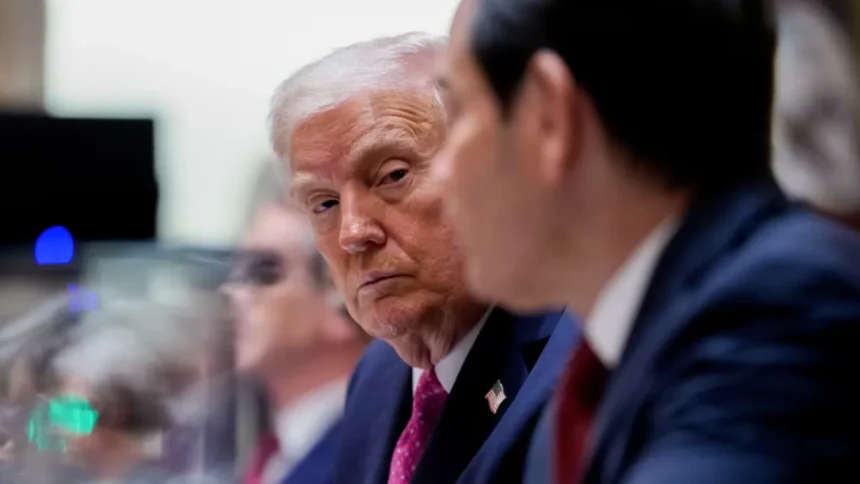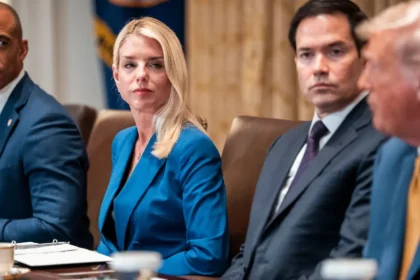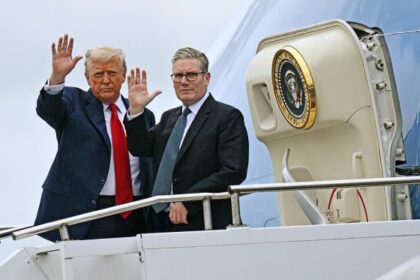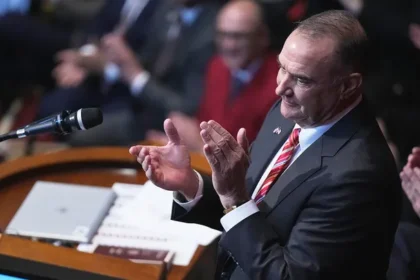Wishing for peace is one thing. Achieving it in the midst of volatile conflicts is something else entirely — a lesson former President Donald Trump is confronting as his efforts to broker peace in Ukraine and the Middle East face mounting obstacles.
Trump’s vision of positioning himself as a global peacemaker has run headfirst into the harsh realities of war and diplomacy. After promising to end foreign entanglements and restore American influence through bold dealmaking, Trump now finds his initiatives stalled, if not outright faltering, amid resurgent violence, entrenched political dynamics, and growing skepticism about his approach.
On Tuesday, Trump abruptly canceled plans for a second summit with Russian President Vladimir Putin, saying he didn’t want to “waste his time.” The statement marked a sharp reversal in tone from his earlier enthusiasm for building a new U.S.-Russia relationship — a pivot that has become emblematic of his unpredictable and often erratic diplomatic style.
The canceled summit also underscores the diminishing prospects for any quick resolution in Ukraine. Trump had previously vowed he could end the war between Russia and Ukraine “within 24 hours” if returned to office, a claim widely dismissed by foreign policy experts. But even in his unofficial peace efforts, Trump is finding that war-weary nations are less receptive to bold proclamations and more interested in strategic substance.
Meanwhile, Vice President JD Vance was dispatched to the Middle East in a high-stakes effort to shore up a fragile ceasefire between Israel and Hamas. Just days earlier, Trump had declared that his administration had helped establish “everlasting peace” in the region — a phrase that now rings hollow amid ongoing tensions and the ever-present risk of renewed violence.
Though the ceasefire remains technically intact, its longevity is far from assured. Experts note that the conditions on the ground remain tense, with both Israeli and Palestinian leadership skeptical of each other’s commitments and the international community watching nervously. Vance’s visit — hurried, high-profile, and heavy with symbolism — was an attempt to lend weight to Trump’s claim of diplomatic success, but the situation remains precarious.
Critics of Trump’s foreign policy are unsurprised by the setbacks. They point to his pattern of overselling minor diplomatic wins as groundbreaking shifts, often before the ink is dry on any agreements. From his declarations of success after his meetings with North Korea’s Kim Jong-un to his announcement of Middle East peace through the Abraham Accords, Trump has consistently sought to frame complex, incremental developments as transformative milestones.
“Trump tends to trade in optics over outcomes,” said a former State Department official familiar with both the Ukraine and Middle East negotiations. “That’s fine for rally speeches, but it doesn’t hold up in war rooms or peace tables.”
Yet even some of his opponents are hesitant to cheer these recent complications. Whatever one thinks of Trump’s motives or methods, his success in reducing violence in either Ukraine or the Middle East would be a win for global stability — and a reprieve for civilians caught in the crossfire.
“There’s no joy in watching diplomacy fail, even if it’s Trump’s,” said Aaron Zelin, a senior fellow at the Washington Institute for Near East Policy. “When peace talks break down, the people who suffer most aren’t in Washington or Moscow or even Mar-a-Lago. They’re in Kyiv and Gaza and Tel Aviv.”
To Trump’s base, his peace efforts remain evidence of his outsider appeal and disruptive leadership. They see his direct engagement, dealmaking flair, and willingness to challenge diplomatic norms as strengths, not flaws. But as his peace missions stall, even some allies are urging him to recalibrate expectations and tone down the rhetoric.
The former president faces another challenge: maintaining credibility in the international community while operating outside formal diplomatic channels. Though Trump remains the Republican Party’s dominant figure and a likely 2024 contender, foreign governments are unsure how seriously to take his initiatives without the backing of the State Department or White House authority.
Moreover, with global alliances shifting and U.S. credibility under strain following years of partisan conflict at home, there’s less appetite for American-led solutions that aren’t tightly coordinated with international partners.
In the meantime, the wars in Ukraine and Gaza grind on, with civilians bearing the brunt. And for Trump, the stark difference between declaring peace and delivering it is becoming increasingly evident.
Whether these latest efforts represent a temporary stumble or a deeper failure of strategy remains to be seen. But the window for breakthrough diplomacy may be closing, and with it, Trump’s ambitions to cement a legacy as a globe-trotting peacemaker.











